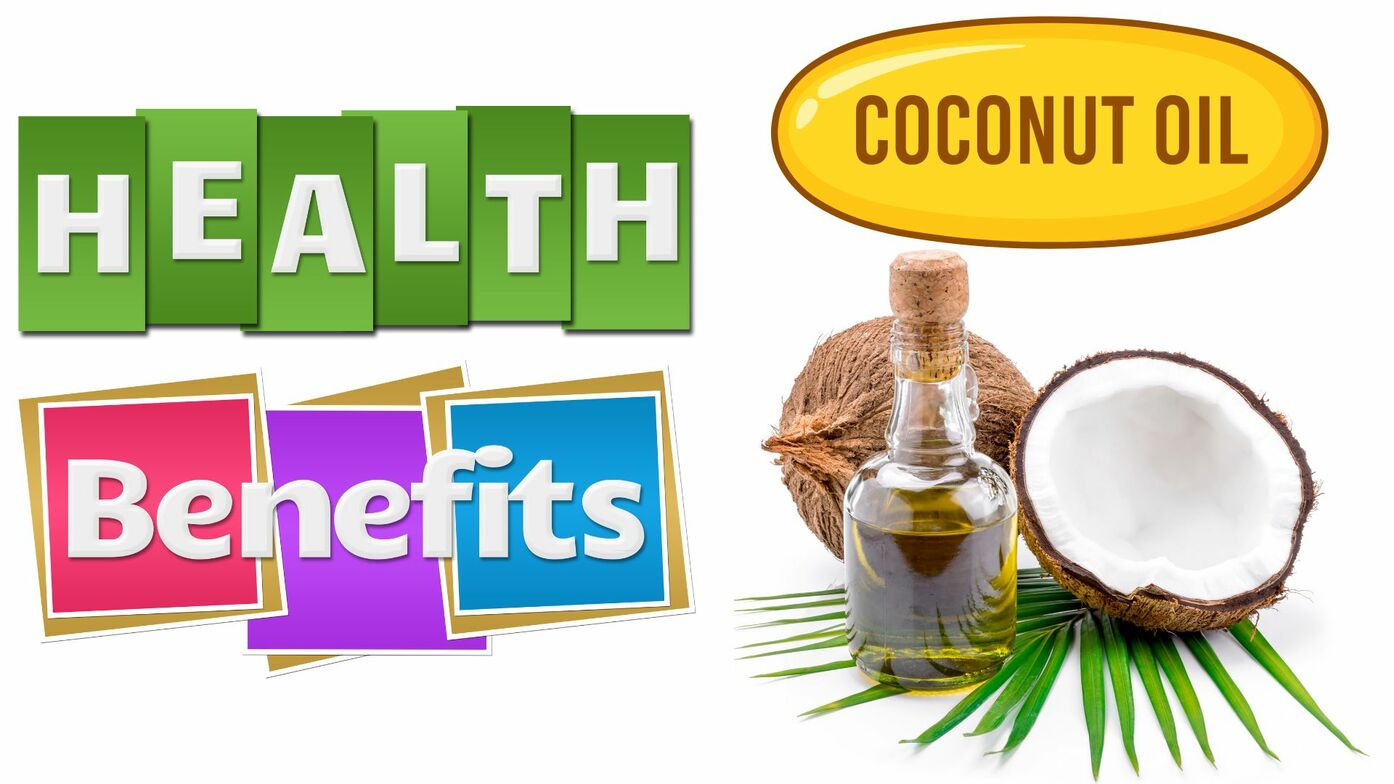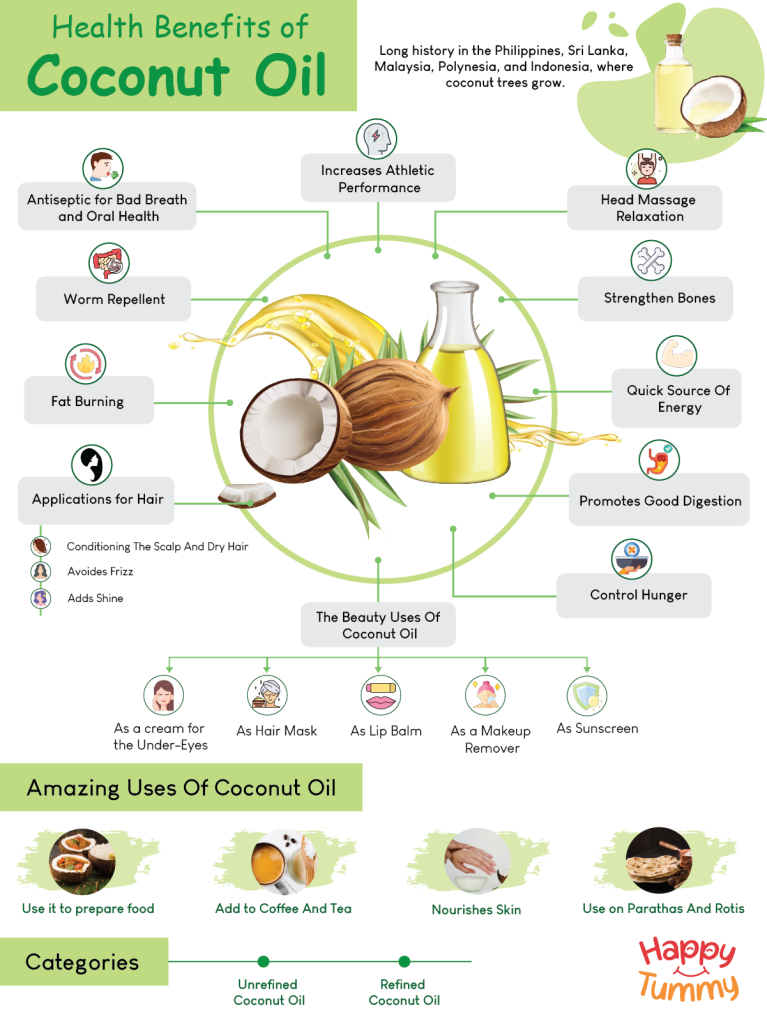
Coconut oil is beneficial to us in many ways. We can use it orally and topically. I use it daily along with oil pulling.
Is Coconut Oil Good for You? The Truth Revealed! - Barbara O'Neill
Top 15 Health Benefits of Coconut Oil & Its Amazing Uses
Coconut oil is an adaptable oil - immensely prominent and has a delicate flavor, is readily accessible, having several health advantages.
Is there anything coconut oil can’t do? We’ve heard that coconut oil is the finest for our skin, teeth, and hair, and we now understand that coconut oil is the healthiest if we’re trying to diet sensibly.
So, besides a flavor and aroma that transport you to your homes, what are the advantages?
Well, it can assist you in losing weight, improving your exercise regimen, and even dealing with cholesterol problems. Using coconut oil in different ways makes acquiring your daily dose of the substance easier.
Coconut oil is edible oil made from pressing pale flesh inside the coconut. It is solid at room temperature and melts to a liquid when heated.
It has a long history in the Philippines, Sri Lanka, Malaysia, Polynesia, and Indonesia, where coconut trees grow.
The oil can broadly be classified into two categories – unrefined and refined.
Unrefined Coconut Oil
This kind of coconut oil doesn’t undergo “refinement,” as the names indicate. Nonetheless, it is coconut oil in its most basic state. This oil, manufactured from fresh or dried coconut flesh, is called “virgin” or “pure” coconut oil.
Refined Coconut Oil
This kind of coconut oil is produced using dried coconut (known as copra). The dried coconut is cleaned and given other treatments to reduce unwanted bacteria.
As pollutants are created during drying, the oil from copra must be cleaned. Following this, the oil undergoes a high-heat procedure to draw out the flavor and aroma of coconut.
Do you know coconut oil is an excellent source of Medium Chain Triglycerides (MCTs)?
A type of saturated fat called MCTs, which is present in coconut oil, is swiftly absorbed by your body and processed by it, leaving you with a happy feeling in your tummy.[1] If you can’t tolerate other fats in oils, coconut oil is an option for you and your happy tummy!
What Are the Health Benefits of Coconut Oil?
Coconut oil is immensely prominent — and for an excellent purpose. It has a delicate flavor, is readily accessible, and has several health advantages. It’s also an adaptable oil with various applications you might not have heard of.
Coconut oil is a versatile oil that has been linked to several potential health benefits. Here are some of the most well-known:
Skin Health:
Coconut oil's emollient properties can moisturize and soothe dry skin.
It contains anti-inflammatory compounds that may help reduce skin irritation and redness.
Some studies suggest that coconut oil may help protect against sun damage.
Oral Health:
Coconut oil pulling, a practice where you swish coconut oil in your mouth for several minutes before spitting it out, may help reduce bad breath and improve gum health.
The oil's antimicrobial properties may help fight bacteria that cause cavities and gum disease.
Weight Management:
Coconut oil contains medium-chain triglycerides (MCTs), which may boost metabolism and promote weight loss.
Studies have shown that MCTs can help reduce hunger and increase satiety.
Brain Health:
MCTs in coconut oil may also improve brain function and cognitive performance.
Some research suggests that coconut oil may help protect against Alzheimer's disease.
Heart Health:
Although coconut oil is high in saturated fat, it contains a unique blend of fatty acids that may not raise LDL (bad) cholesterol levels.
Some studies have shown that coconut oil may improve HDL (good) cholesterol levels.
Other Potential Benefits:
Coconut oil may have antioxidant and anti-aging properties.
It may help regulate blood sugar levels.
It may boost energy levels.
Note: It's important to consume coconut oil in moderation, as it is high in calories. Additionally, some studies have shown that coconut oil may increase cholesterol levels in some individuals. Consult with a healthcare professional before using coconut oil for medicinal purposes
Oil Pulling
Oil pulling is a traditional Ayurvedic practice that involves swishing edible oil in the mouth for 15-20 minutes before spitting it out. It is believed to improve oral health and remove toxins from the body.
-
Reduced plaque and gingivitis:
Oil pulling may help remove bacteria and plaque from the teeth and gums, reducing inflammation and improving oral health.
-
Improved breath:
Oil pulling can help eliminate bad breath by reducing the number of odor-causing bacteria in the mouth.
-
Strengthened teeth and gums:
Some proponents claim that oil pulling can strengthen teeth and gums, although scientific evidence is limited.
-
Detoxification:
Oil pulling is believed to remove toxins from the body through the oral mucosa, but there is no scientific evidence to support this claim.
How to Do Oil Pulling:
-
Choose an edible oil, such as coconut, sesame, or olive oil.
- Put 1 tablespoon of oil in your mouth.
- Swish the oil around your mouth for 15-20 minutes, pulling it through your teeth and gums.
- Spit the oil out into the sink or trash can.
- Rinse your mouth with water.
- Brush and floss your teeth as usual.
- Do not swallow the oil.
- If you experience any discomfort or irritation, discontinue oil pulling.
- Oil pulling should not be a substitute for regular dental care.
-
Consult your doctor before oil pulling if you have any medical conditions or are taking any medications.


